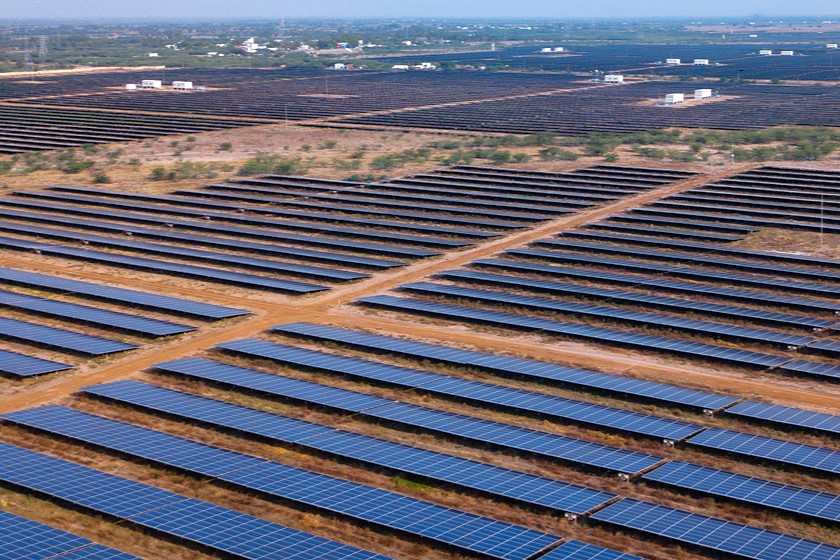‘Make In India’ Fuels 29x Spurt in Solar Module Manufacturing in 10 Years
The transformational ‘Make In India’ policy increases solar module manufacturing capacity from 2.3 GW in 2014 to 67 GW in 2024.
The “Make in India” policy has substantially improved the fortunes of the renewable energy sector by fueling domestic manufacturing and reducing dependence on imports.
Introduced in 2014, the transformational policy promoted domestic manufacturing of renewable energy equipment, such as solar photovoltaic modules, cells and upstream components like ingots, wafers and polysilicon.
These efforts also include manufacturing wind turbines, electrolyzers for green hydrogen production and battery energy storage systems.
According to the Ministry of New and Renewable Energy, the country’s installed solar PV module manufacturing capacity has grown from 2.3 gigawatts in 2014 to about 67 GW under the “Make in India” initiative.
“This increase makes India capable of meeting domestic demand while catering to exports. The country has seen rapid growth in solar PV module production capacity, jumping from 8 GW in 2021 to 67 GW per year in the last 3.5 years alone,” the ministry release stated.
Financial Support
The government introduced several fiscal measures to drive the clean energy sector, including the Production Linked Incentive scheme for setting up manufacturing units for solar PV modules and upstream components.
In April 2021, the Union Cabinet introduced the PLI Scheme for High-Efficiency Solar PV Modules with an initial outlay of ₹24,000 crores.
Under the PLI scheme, domestic manufacturers received a percentage of their incremental production value as incentives, encouraging them to increase their output.
Other measures include Viability Gap Funding for stationary BESS projects and incentives for manufacturing electrolyzers and green hydrogen production under the National Green Hydrogen Mission.
The ministry also launched concessional customs duties on inputs required for domestic manufacturing and waivers on import duties for specific capital goods needed for solar PV cell and module production.
It also imposed customs duties on imports of solar PV modules, cells and inverters.
“India’s renewable energy sector has contributed immensely to the #10YearsOfMakeInIndia. From PLI to VGF, we are extending all possible support to our domestic industries. We are committed to establishing India as a major global player in the complete value chain of clean energy solutions,” posted Union Minister Prahlad Joshi on X.
Joshi was also instrumental in creating policy provisions such as PM Surya Ghar schemes, Muft Bijli Yojana, Pradhan Mantri Kisan Urja Suraksha evam Utthaan Mahabhiyan, and Central Public Sector Undertaking Scheme Phase-II, where Government subsidies are provided.
Also Read:
Renewable Energy Sector to Provide Momentum to Indian Economy: Minister

